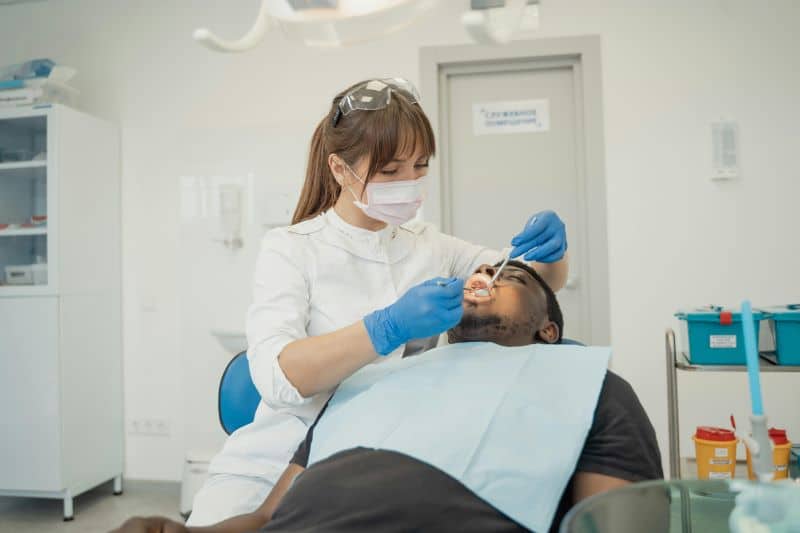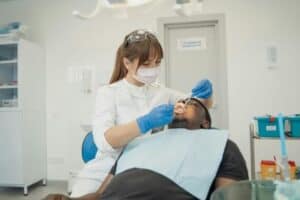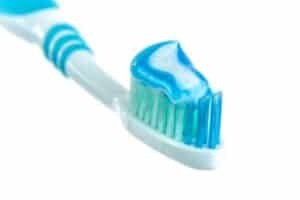
27 Nov The Importance of Dental Check-Ups Before the New Year
The Importance of Dental Check-Ups Before the New Year
Why Dental Health Matters
Oral health is intricately connected to overall well-being. Gum disease, for instance, has been linked to heart disease, diabetes, and even adverse pregnancy outcomes. Regular dental check-ups help prevent such complications by addressing issues early on.

Timing Your Dental Check-Up
Scheduling your dental visit before the year ends has unique advantages. Many insurance plans operate on an annual basis, so using your benefits before they reset can save you money. Moreover, a clean bill of oral health sets the tone for a healthy start to the new year.
The Role of Regular Dental Exams
Dental exams are essential for early detection of problems like cavities, gum disease, and oral cancer. Professional cleanings remove plaque and tartar buildup, keeping your teeth and gums healthy.
Understanding Plaque and Tartar
Plaque is a sticky film of bacteria that constantly forms on your teeth. While daily brushing and flossing help remove plaque, any buildup that remains can harden into tartar. Tartar is more difficult to remove and often requires professional cleaning. Left untreated, these deposits can lead to gum disease and cavities.
Professional dental cleanings are crucial because they reach areas that toothbrushes and floss can’t. Hygienists use specialized tools to remove tartar, leaving your teeth cleaner and healthier than at-home care alone.
Addressing Common Oral Health Concerns
Cavities
Cavities, or tooth decay, occur when bacteria in plaque produce acids that erode the tooth enamel. Without treatment, cavities can worsen, leading to pain or even tooth loss. Dental check-ups ensure early detection and treatment, often with a simple filling.
Gum Disease
Gum disease begins as gingivitis, characterized by redness, swelling, and bleeding gums. If untreated, it can progress to periodontitis, which damages the tissue and bone supporting your teeth. Routine dental visits help catch gum disease in its early stages, preventing severe complications.
Bad Breath
Persistent bad breath, or halitosis, can indicate underlying dental issues like decay or infection. A dentist can identify the root cause and recommend appropriate treatments to freshen your breath and restore confidence.
Spotting Warning Signs
Pay attention to signs that may indicate oral health issues. Common symptoms include:
Sensitivity: Pain or discomfort when consuming hot, cold, or sweet foods.
Bleeding Gums: Often a sign of gingivitis or improper brushing techniques.
Persistent Pain: Ongoing discomfort could signal an infection or tooth damage.
If you notice these symptoms, don’t wait until your next routine visit. Early intervention can prevent more significant problems.
Making the Most of Dental Insurance
Dental insurance often resets annually, making the end of the year an ideal time to utilize unused benefits. Most plans cover preventive services like cleanings and exams at no additional cost. Some also cover restorative procedures, so scheduling necessary treatments before the year ends can save you money.
Understanding your coverage is key. If unsure about your benefits, contact your dental provider or insurance company for clarification. This ensures you’re not leaving valuable resources on the table.

Preparing for the New Year
Setting Oral Health Goals
A dental check-up can help you identify areas for improvement and set goals for the coming year. For example, your dentist might recommend upgrading to an electric toothbrush or incorporating a fluoride rinse into your routine.
Preventive Measures
Dentists emphasize prevention, suggesting measures like sealants for cavity-prone teeth or custom mouthguards for those who grind their teeth. Taking these steps now can prevent costly treatments later.
Developing Good Dental Habits
Consistent oral hygiene habits are the cornerstone of dental health. Here are some tips:
Brushing: Use fluoride toothpaste and brush for at least two minutes twice daily.
Flossing: Clean between your teeth daily to remove food particles and plaque.
Diet: Limit sugary snacks and drinks, as they feed bacteria that cause decay.
By incorporating these habits into your daily routine, you can maintain a healthy smile throughout the year.
The Pediatric Perspective
Children’s oral health is just as important as adults’. Early dental visits help establish a positive relationship with dental care and catch potential issues early. Dentists can also provide guidance on thumb-sucking, teething, and fluoride use.
Cosmetic Benefits of Dental Check-Ups
Beyond health, dental visits can enhance your smile’s appearance. Whitening treatments, for example, can remove surface stains caused by coffee, tea, or smoking. Dentists can also correct minor imperfections like chips or uneven teeth with cosmetic procedures.
Boosting Confidence
A bright, healthy smile can significantly impact self-esteem. Knowing your teeth are clean and cared for gives you the confidence to share your smile more freely.

FAQs About Dental Check-Ups
Why should I schedule a dental check-up before the new year?
End-of-year appointments allow you to maximize insurance benefits and address any issues before they worsen.
How often should I visit the dentist?
Most dentists recommend check-ups every six months, but frequency may vary based on individual needs.
What are the benefits of professional teeth cleaning?
Cleanings remove stubborn plaque and tartar, improving oral health and preventing gum disease.
Can dental issues affect my overall health?
Yes, untreated oral problems can lead to systemic issues like heart disease and diabetes.
What should I expect during a routine dental check-up?
A typical check-up includes an exam, cleaning, and sometimes X-rays to check for hidden problems.
Are dental check-ups necessary for children?
Absolutely! Early check-ups help prevent cavities and establish good dental habits.
How long does a dental check-up typically take?
A dental check-up usually lasts between 30 minutes to an hour, depending on the complexity of the exam and any treatments needed.
Can I still get a dental check-up if I don’t have any pain or visible issues?
Yes, regular check-ups are essential even if you don’t experience pain. Many oral health problems develop without noticeable symptoms, so preventive care can catch issues early.
What happens if I don’t go to the dentist regularly?
Skipping regular dental visits can lead to untreated cavities, gum disease, and other serious oral health problems that may require more invasive and expensive treatments.
Are dental check-ups covered by insurance?
Most dental insurance plans cover preventive care, such as exams and cleanings. It’s a good idea to check your specific policy to confirm coverage.
How can I prepare for my first dental check-up?
If it’s your first visit, bring any medical records or a list of medications you’re currently taking. Be prepared to discuss your dental history and any concerns you may have.
Can I schedule my check-up for the evening or weekend?
Many dental offices offer evening or weekend appointments to accommodate busy schedules. Contact your provider to find a time that works for you.
In Conclusion
As the new year approaches, prioritizing your dental health through a professional check-up is a simple yet impactful step toward overall wellness. Regular visits to the dentist not only address existing issues like cavities or gum disease but also serve as a proactive measure to prevent future complications. By scheduling an end-of-year check-up, you can maximize your dental insurance benefits, prepare for a healthy start to the year, and even enhance your confidence with a brighter smile. Remember, a healthy mouth is key to a healthy life, so don’t wait—take charge of your oral health today and step into the new year with a fresh and radiant smile.


Sorry, the comment form is closed at this time.